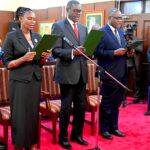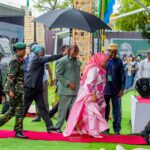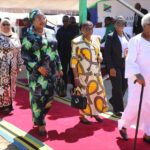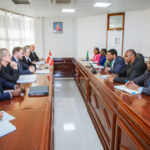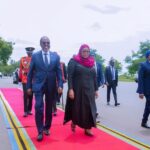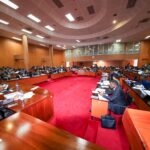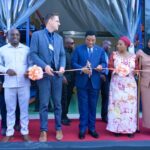The Deputy Prime Minister and Minister of Energy, Hon. Dr. Doto Biteko, has announced a reform plan for the livestock sector.
The Deputy Prime Minister and Minister of Energy, Hon. Dr. Doto Biteko, has disclosed that the Government has devised a comprehensive reform plan for the livestock sector with the objective of addressing the numerous challenges currently facing the industry in the country. At the closing ceremony of the Livestock Exhibition and Auction for the year 2024 in Kibaha, Pwani, Dr. Biteko underscored the significance of modernising livestock breeding practices with the aim of enhancing productivity and sustainability.
Government’s Commitment to Livestock Sector Reform
Dr. Biteko emphasised the Government’s unwavering commitment to the livestock sector, emphasising the necessity for the Ministry of Livestock and Fisheries to develop innovative methods and strategies. The aforementioned strategies are designed to eradicate unproductive breeding practices and to encourage the adoption of modern breeding techniques. He urged the Ministry to persevere in its educational efforts with respect to breeders, emphasizing the necessity of change for the sector’s growth.
“Ministry, don’t get tired and don’t stop educating our breeders. We have to accept that they have been like that for many years. Change must happen, and we have to know that many areas that need land are increasing, including livestock, but the land is not increasing. So, let’s continue to give them education on modern animal husbandry and encourage breeders to come to exhibitions like this so that they can get knowledge and technology that will help them,” said Dr. Biteko.
Adapting to Changing Times
Dr. Biteko emphasised the necessity for breeders to adapt to the evolving landscape of the country and the world. He underscored the importance of embracing modern breeding practices as a means of ensuring the sector’s viability and profitability.
“breeders should know that the country and the world are changing. It is good that we change now before the change itself forces us to change. If we have decided that farming is our life, we must believe that life has changed and have productive livestock that will bring us money that will be able to change our lives,” he added.
Empowering Farmers
Dr. Biteko advised farmers to regard their livestock as valuable assets that could significantly enhance their livelihoods. He observed that even a farmer with 1,000 cows possesses a substantial capital base, and the key lies in leveraging these assets effectively.
“Farmers, don’t consider yourself weak or helpless. You can find a farmer who has 1,000 cows. You can’t call him poor; those cows can be capital. What is needed is how you can change your life by using the cows you have,” he stated.
Government Initiatives and Regional Livestock Shows
The government has demonstrated a proactive approach to enhancing the livestock sector by allocating specific areas for grazing and encouraging breeders to avoid conflicts with farmers. These conflicts have both social and economic repercussions, and thus it is essential to resolve them in order to ensure the stability of the sector.
Furthermore, Dr. Biteko proposed the establishment of regional livestock shows, which would enable a more extensive audience of farmers to gain access to solutions to their challenges. Such events provide an opportunity for attendees to gain insight into the most effective livestock breeds and the latest breeding technologies.
Deputy Minister’s Remarks
In a statement, the Deputy Minister of Livestock and Fisheries, Hon. Alexander Mnyeti, expressed his gratitude to the participants and sponsors of the livestock shows. He underscored the significance of these events in disseminating knowledge to breeders and enhancing productivity.
“These shows are important, and for this year, we have put more energy into them because they bring great results. Our government leaders have instructed that our breeders should not breed in the old-fashioned way. It must now come to a place where our breeders get rid of old-fashioned breeding under the traditional umbrella. We, the Ministry, have been providing education many times through our experts and Extension Officers despite these breeders having little awareness of modern breeding,” said Hon. Mnyeti.
Challenges and Solutions
The Honourable Mnyeti drew attention to the difficulties faced by herdsmen, such as the necessity of walking long distances to find pasture, which leaves animals exhausted. The government has maintained its commitment to allocating grazing areas as a means of addressing this issue.
“We provide modern breeding education by fattening livestock and selling even one cow for 500,000 shillings or more instead of 200,000 shillings. Breeders must know that a cow that has not been bred in a modern way, has not been vaccinated, or if it is ill, is only given medicine arbitrarily, it cannot be sold abroad because it is not of good quality,” he explained.
Call to Action
The Honourable Mnyeti encouraged livestock breeders to utilise the expertise of livestock professionals in order to gain modern and productive breeding education, which is essential for transforming the livestock sector in the country.
Support from the Office of the President
In a statement released by the Deputy Minister’s Office of the President, Public Service Management and Good Governance, Hon. Ridhiwani Kikwete, who is also a Member of Parliament for Chalinze State, reiterated the necessity for breeders to adopt modern breeding practices. He emphasised that President Dr. Samia Suluhu Hassan is committed to implementing significant changes in the livestock industry, including addressing the challenges faced by livestock farmers.
In conclusion, the government’s reform plan for the livestock sector, spearheaded by Deputy Prime Minister and Minister of Energy, Hon. Dr. Doto Biteko, aims to bring about significant improvements in productivity and sustainability.
Tanzania Media
- Kanyala Ferry Launch: TEMESA’s New Service for 15,000 Sengerema Residents (Mwanza) - 18 August 2025
- Russia-Tanzania Naval Cooperation: How the Smolny Training Ship Boosts Dar es Salaam’s Maritime Security - 18 August 2025
- Tanzania’s ICGLR Commitment: Stabilising the DRC & Great Lakes Region - 18 August 2025







